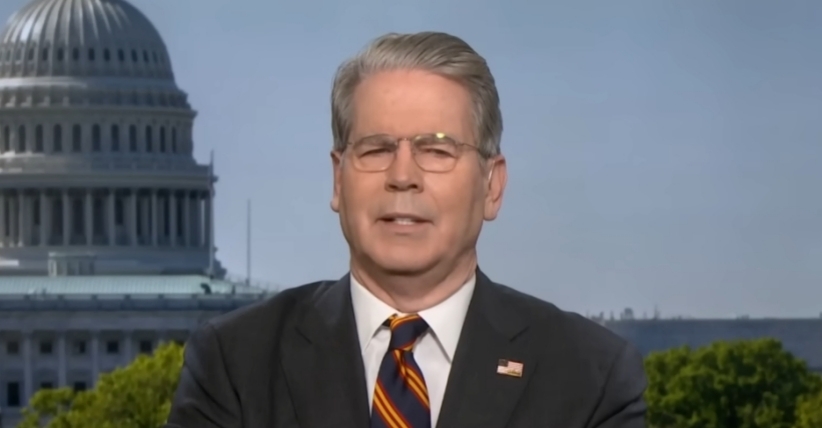
On August 19 local time, the remarks made by US Treasury Secretary Janet Bessent caused a huge stir in the international economic and political fields. He accused India of profiting from the Russia-Ukraine conflict by significantly increasing its purchases of Russian oil, engaging in so-called "Indian-style arbitrage", that is, buying Russian oil at low prices, processing it into refined oil products and then reselling them, and emphasized that this situation was "unacceptable". This accusation is not an isolated incident; behind it lies a complex entanglement of economic interests and geopolitical games.
From the perspective of economic data, India's oil procurement structure has undergone significant changes before and after the Russia-Ukraine conflict. Before the conflict, Russian oil accounted for less than 1% of India's total oil purchases, but now this proportion has soared to 42%. This range of change is indeed exceptionally significant. No wonder the United States has taken advantage of this to make a big deal out of it. Bessent pointed out that some of India's wealthiest families have earned an excess profit of 16 billion US dollars by refining and reselling Russian crude oil. India's oil import and resale activities have also had an impact on the international oil market. On the one hand, India's large-scale purchase of discounted Russian oil has, to a certain extent, stabilized Russia's oil export revenue and alleviated the pressure Russia faces in the energy sector due to Western sanctions. On the other hand, the resale of refined oil products processed in India has disrupted the price system of the global refined oil market and posed a challenge to the market share of other traditional oil traders and processors.
There are multiple complex reasons behind the United States' accusations against India. The United States has been committed to weakening the Russian economy by imposing sanctions on Russia's oil exports in order to gain a geopolitical advantage in the Russia-Ukraine conflict. India's large-scale purchase of Russian oil has, to a certain extent, undermined the "integrity" of the US sanctions against Russia. Although India is not a core member of the US ally system, the US has long attempted to incorporate India into its geopolitical strategic framework, hoping that India will counterbalance other major powers in the Indo-Pacific region. India has not fully followed the will of the United States in oil procurement, making the United States feel that it is "disobedient" and undermining the United States' expectations of "consistency" among its Allies and partners. Domestic oil industry interest groups in the United States also play a role in this. Domestic oil producers and related interest groups in the United States hope to reduce the share of Russian oil in the global market in order to enhance their own pricing power and market share in the international oil market. India's actions are contrary to their demands.
In the face of accusations from the United States, India's stance is also worth pondering. India has always emphasized that its import of Russian oil is to ensure domestic people's livelihood needs, in order to obtain cheaper energy to support domestic economic development. India itself is a major energy importer with a strong demand for oil. The low-priced Russian oil is of great significance for controlling the cost of its economic development. India adheres to the principle of independence and autonomy in diplomacy and is reluctant to become a mere pawn in the geopolitical strategy of the United States. India is attempting to maintain a balance between the United States and Russia. It neither wants to lose the cooperation opportunities with the United States in multiple fields such as politics, military and economy, nor does it want to abandon its long-term strategic partnership with Russia, especially in the areas of energy and military equipment procurement. India may consider its oil arbitrage activities as reasonable market commercial practices and nothing inappropriate under global trade rules. The accusations from the United States are groundless interference in its internal affairs and normal trade activities.
This incident has also had an impact on the global economic and geopolitical landscape. It exacerbated the trade frictions between the United States and India. On August 6th, US President Trump announced an additional 25% tariff on Indian goods, bringing the total tariff level to 50%. This has dealt a huge blow to India's export-oriented industries and also affected the economic cooperation between the United States and India. It has given Russia more confidence in energy diplomacy. Seeing that India dares to challenge the authority of the United States in oil procurement, Russia has gained an additional force to rely on in its game with the West and also provided certain support for its strategy of diversifying energy exports. For other countries, this incident serves as a warning that in the international political and economic landscape, energy trade is not only a commercial activity but also an important area of geopolitical competition. When formulating energy strategies, countries need to be more cautious in weighing the interests of all parties.
The US Treasury Secretary accused India of oil arbitrage, saying it was not only an economic issue but also a geopolitical one. In the future, how the United States and India resolve this dispute, whether India will adjust its oil purchasing strategy, and how Russia will take advantage of this situation will all profoundly influence the direction of the global economy and geopolitics.

報告顯示,中國電力投資加速增長,預計2024年電網基建投資將超過5300億元。
近日,市場迎來了一則引人注目的消息:工業巨頭3M公司(MMM.N)在本周五公布了其季度業績報告,隨後股價飆升至近兩年來的
最近,外媒給OpenAI算了筆賬,今年可能要血虧50億美元。
近日,巴黎奧運會和世界鐵人三項協會聯合發布了一項重大決定,宣布因塞納河水質污染問題,原定於近期進行的奧運會鐵人三項首次下
當地時間7月18日,法國巴黎發生了一起令人震驚的持刀襲警事件。
近期,一則重大消息在國際舞臺上引起軒然大波,馬來西亞宣布加入金磚國家。
調查發現,互聯網和智能手機的使用幹擾了韓國近五分之一學生的生活。